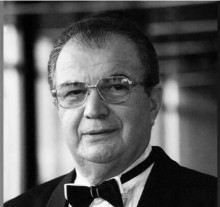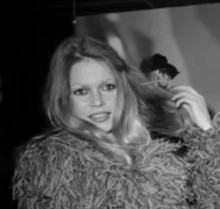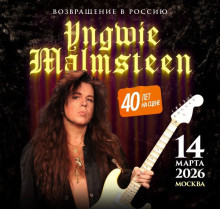Просветите, плиззз... Сейчас в сериале "Коломбо" услышала знакомую мелодию "Ты скажи мне, где цветы, где все маки?" (Ж.Бичевская)... Это наша песня или же у неё есть импортный оригинал? Кто - у кого?
Просветите, плиззз... Сейчас в сериале "Коломбо" услышала знакомую мелодию "Ты скажи мне, где цветы, где все маки?" (Ж.Бичевская)... Это наша песня или же у неё есть импортный оригинал? Кто - у кого?
Dusty Springfield - Sag Mir, Wo Die Blumen Sind (Where Have All The Flowers Gone)
Klaus Wunderlich - Sag Mir, Wo Die Blumen Sind, I Could Have Danced All Night, Perfidia
Виктор, благодарю за песни. Но всё-таки есть вопрос.
Исходный вариант - немецкий (если М.Дитрих...)? Или как?...
"До Бичевской..." - Это я поняла... Т.е., исходный вариант - немецкий, а не английский... Так?
Ребята, а вы можете выложить ,эту песню в исп. Ж. Бичевской? Хочется послушать. Спасибо!
-----------------------------------------------------------------------
On July 26, 1956, the House of Representatives voted 373 to 9 to cite Pete Seeger and seven others (including playwright Arthur Miller) for contempt, as they failed to cooperate with House Un-American Activities Committee (HUAC) in their attempts to investigate alleged subversives and communists. Pete Seeger testified before the HUAC in 1955.
In one of Pete's darkest moments, when his personal freedom, his career, and his safety were in jeopardy, a flash of inspiration ignited this song. The song was stirred by a passage from Mikhail Sholokhov's novel "And Quie Flows the Don".
Around the world the song traveled and in 1962 at a UNICEF concert in Germany, Marlene Dietrich, Academy Award-nominated German-born American actress, first performed the song in French, as "Qui peut dire ou vont les fleurs?" Shortly after she sang it in German. The song's impact in Germany just after WWII was shattering. It's universal message, "let there be peace in the world" did not get lost in its translation. To the contrary, the combination of the language, the setting, and the great lyrics has had a profound effect on people all around the world. May it have the same effect today and bring renewed awareness to all that hear it.
Pete Seeger - Where Have All the Flowers Gone?
-----------------------------------------------------------------
----------------------------------------------------------------------
----------------------------------------------------------------------
Мегаполис и Маша Макарова - Где цветы?
------------------------------------------------------------------
Valera123 пишет:
-----------------------------------------------------------------------
On July 26, 1956, the House of Representatives voted 373 to 9 to cite Pete Seeger and seven others (including playwright Arthur Miller) for contempt, as they failed to cooperate with House Un-American Activities Committee (HUAC) in their attempts to investigate alleged subversives and communists. Pete Seeger testified before the HUAC in 1955.
In one of Pete's darkest moments, when his personal freedom, his career, and his safety were in jeopardy, a flash of inspiration ignited this song. The song was stirred by a passage from Mikhail Sholokhov's novel "And Quie Flows the Don".
Around the world the song traveled and in 1962 at a UNICEF concert in Germany, Marlene Dietrich, Academy Award-nominated German-born American actress, first performed the song in French, as "Qui peut dire ou vont les fleurs?" Shortly after she sang it in German. The song's impact in Germany just after WWII was shattering. It's universal message, "let there be peace in the world" did not get lost in its translation. To the contrary, the combination of the language, the setting, and the great lyrics has had a profound effect on people all around the world. May it have the same effect today and bring renewed awareness to all that hear it.
26 июля 1956 палата представителей голосовала за то от 373 до 9 цитировать Пита Сигера и семь других (включая драматурга Артура Миллера) для презрения, когда они были не в состоянии сотрудничать с неамериканским Комитетом по Действиям Дома (HUAC) в их попытках исследовать предполагаемый subversives и коммунистов. Пит Сигер свидетельствовал перед HUAC в 1955.
В один из самых темных моментов Пита, когда его личная свобода, его карьера, и его безопасность находились под угрозой срыва, вспышка вдохновения зажигала эту песню. Песня размешивалась отрывком из романа Михаила Шолохова "И Потоков Quie Дон". Во всем мире песня поехала и в 1962 на концерте ЮНИСЕФ в Германии, Марлен Дитрих, назначенная премией Оскар американская актриса немецкого происхождения, сначала выполнила песню на французском языке, как "Qui peut страшный ou vont les fleurs?" Вскоре после того, как она спела это на немецком языке. Воздействие песни в Германии сразу после Второй мировой войны разрушалось. Это - универсальное сообщение, "позвольте там быть миром в мире", не терялся в его переводе. Наоборот, комбинация языка, урегулирования, и большой лирики имела сильное воздействие на людей на всем свете. Может это иметь тот же самый эффект сегодня и приносить возобновленное понимание ко всему, что слышит это.
Pete Seeger - Where Have All the Flowers Gone?
-----------------------------------------------------------------




___keepration_220x220.jpg)



Marlen Dietrich - Sag Mir Wo Die Blumen Sind